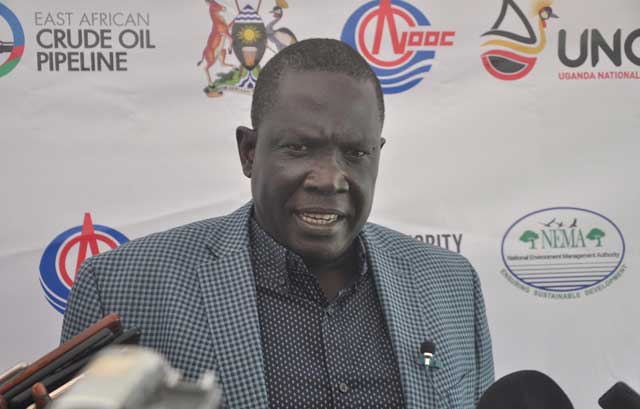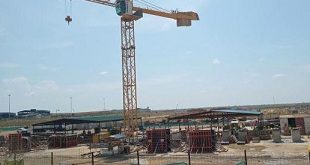
Kampala, Uganda | THE INDEPENDENT | The National Agricultural Management Authority-NEMA has snubbed a petition by civil societies under Civil Society Coalition on Oil and Gas-CSCO which requested the environment body not to approve the east African oil pipeline environment and social impact assessment report.
The Civil Society Coalition on Oil and Gas in collation with Advocates Coalition for Development and Environment –ACODE had earlier cited legal issues that need to be addressed before the report is approved.
Among the issues highlighted was the status of the firm which made the assessment. According to CSCO, RSK environment Limited, an environment practitioner that wrote the ESIA report is not registered with NEMA as required by regulation 16 of the National Environment Regulations.
However, the NEMA Executive Director Dr. Tom Okurut, says that the civil societies could have misinterpreted the laws and regulations. Okurut notes that although RSK environment Limited based in the United Kingdom is not registered in Uganda, it partnered with a local company as required by laws.
Okurut says that since the oil and gas sector is still at its infant stages in Uganda, some local firms could have not been able to solely carry out the environment and social impact assessment per the required standards.
However, The CSCO National Coordinator James Muhindo insists that although the law provides for a partnership between a foreign and local company for such activities, the local company should have been the lead partner which is not the case.
Dickens Kamugisha, the Chief Executive officer Africa Institute for Energy Governance-AFIEGO, says that they played their oversight role and expected NEMA to critically look at their submission.
He says they are ready to battle the matter in Uganda and if necessary they will as well drag the foreign companies which are breaching law to their respective countries.
Kamugisha notes that most of the action done in regard to impact assessment in the oil sector has been done contrary to the laws and heavily politicized which is posing danger for the country and also creating a bad precedent for other actions as developers will always take the government for granted.
Dr. Okurut notes that NEMA has been reviewing the report and currently the process is in its last stages. he notes that having received feedback from project developers on several areas of concern they are soon approving the report with conditions.
NEMA and CSOs have since highlighted a number of queries which they say need to be addressed before construction of the pipeline takes shape including among others the magnitude and sensitivity of the impacts which are being underrated and ranked as non-significant.
Other issues include waste management and disposal, possible leakages and spillages and management of ecosystems, as areas that need emphasis during the much-anticipated construction of the Oil Pipeline.
The Uganda-Tanzania crude oil pipeline, also known as the East African crude oil pipeline, is intended to transport crude oil from Uganda’s oil fields to the port of Tanga, Tanzania. The 1,445km (898 miles) pipeline with a diameter of 24 inches will be constructed at $3.5 billion. It is planned to have a capacity to transport 216,000 barrels of crude oil per day.
******
URN
 The Independent Uganda: You get the Truth we Pay the Price
The Independent Uganda: You get the Truth we Pay the Price



